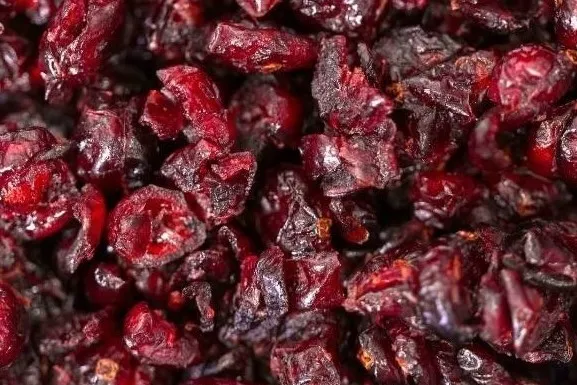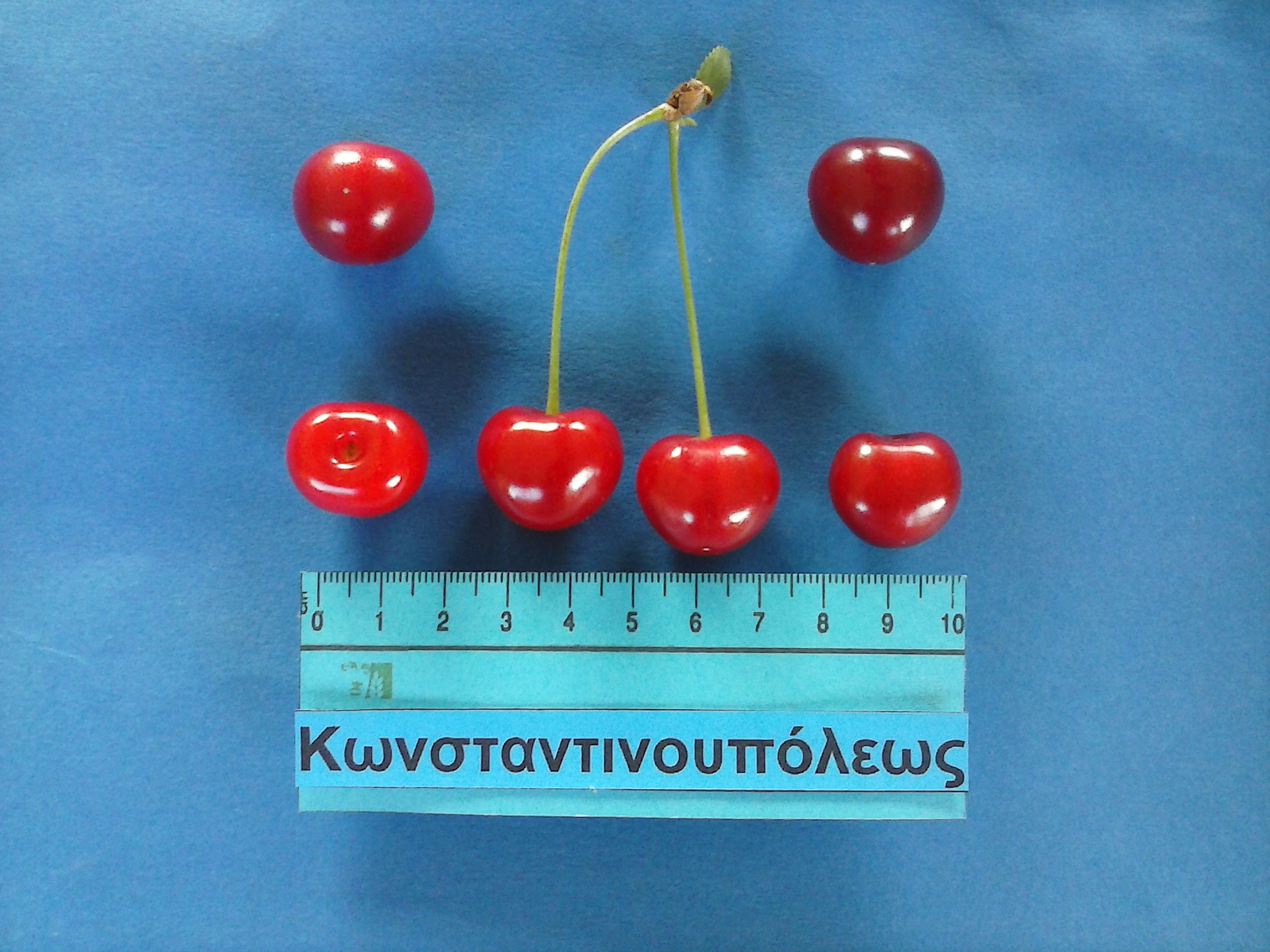Over the past 20 years, the Berries and Stonefruit Group of the Laimburg Research Centre (South Tyrol, Italy) has carried out several trials in sweet cherry growing. The philosophy of the Centre is to put scientific knowledge to practical use, for example in its pilot farms.
The Fragsburg farm is located at 700m a.s.l. in the hills above the city of Merano (Bozen). There, in the experimental cherry orchard (about 1.5 ha), different training systems, rootstocks (both on virgin- and on replanted soil), varieties, and pruning techniques (manual vs. mechanical pruning) are tested with the purpose of supporting farmers and extension specialists in the agronomic choices
In the varietal testing field 75 different cultivars/selections are compared to national and international varieties to identify their strengths and weaknesses.
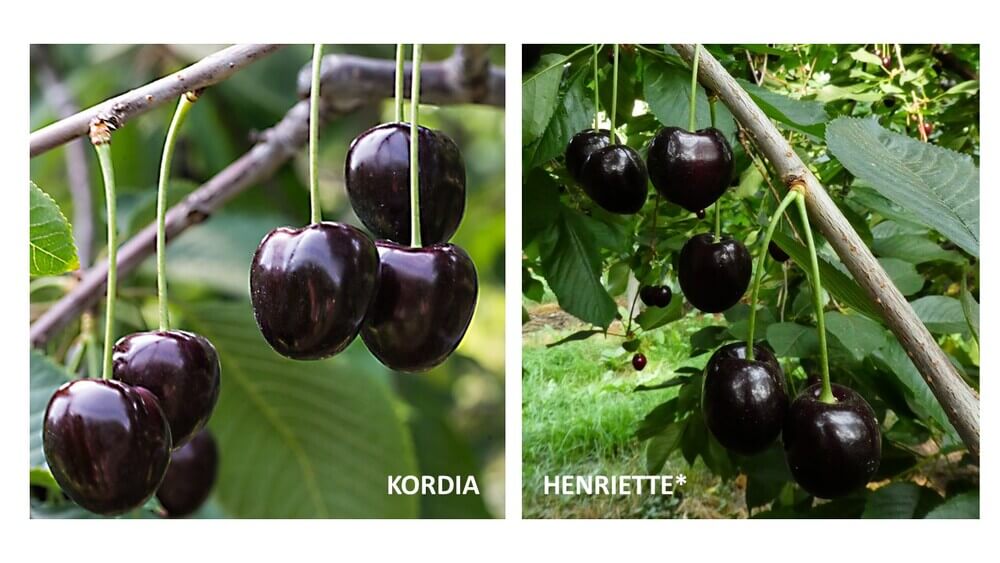
During recent years some varieties have positively distinguished themselves in one or more aspects. One of the most interesting is certainly Henriette*, an open pollination of ‘Kordia’, selected by Hilmar Schwärzel in Münchenberg, Germany.
From an appearance perspective, this variety perfectly matches the image of the Bergkirsche (literally, “the cherry from the mountains”): it is an attractive heart-shaped cherry with pronounced apex having a very long, middle-thin, peduncle. The color is black red (Ctifl 5-6) with a good overall firmness and fruit size.
It is a self-sterile variety and belongs to the sterility group S1S6; the full bloom is reached between Kordia and Regina, the flowering intensity is high, and the production is concentrated mainly on the basal (and median) buds of the 1-year-old shoots. Because of its intense floral differentiation, it is especially prone to produce blind wood.
Pruning should consider leaving limbs with different ages to allow a gradual renewal (also shortening some 1-year-old shoots to promote branching). Although the average organic matter content of local soils exceeds 3/4%, the growth rate of Gisela5 is often too low.
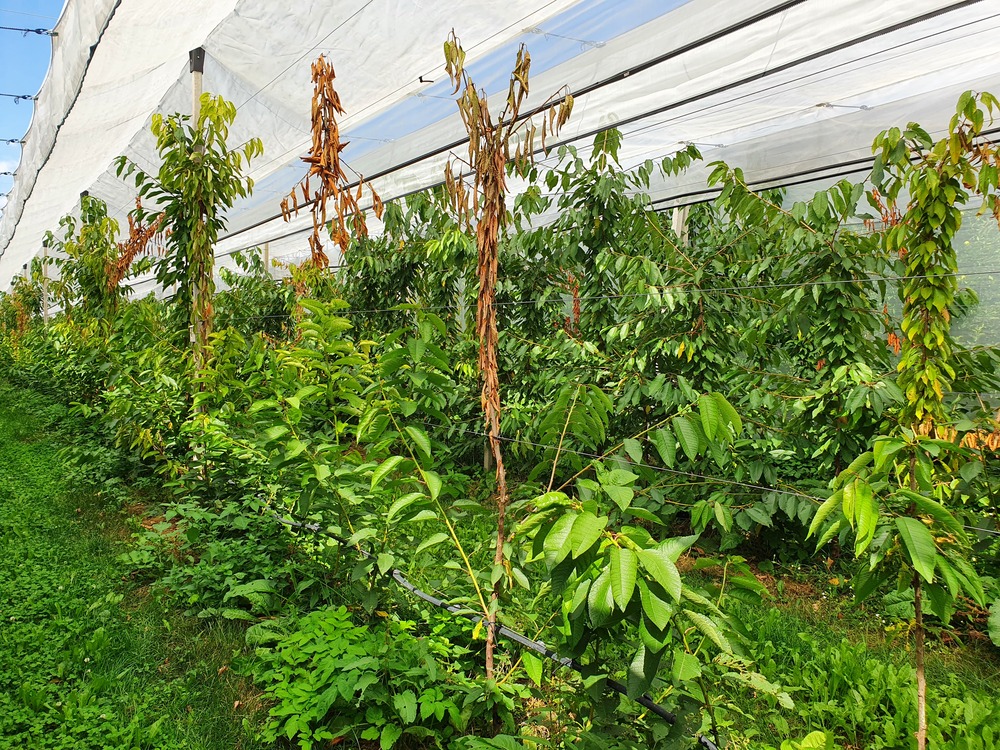
Compared to Kordia, Henriette* shows a higher firmness, a bigger average size, and a better frost resistance (like Regina) but also a marked tendency to late fruit drop (again, similar to Regina). The overall taste is good, the sugar content is high but without the aroma and the acidity of Kordia.
Although many nurseries reported that the ripening time is between Kordia and Regina, we suggest to harvest this variety together with Kordia because, at later harvest date, the peduncle could turn yellowish and start to dry out. No fruit cracking was observed in the last years under rain cover.
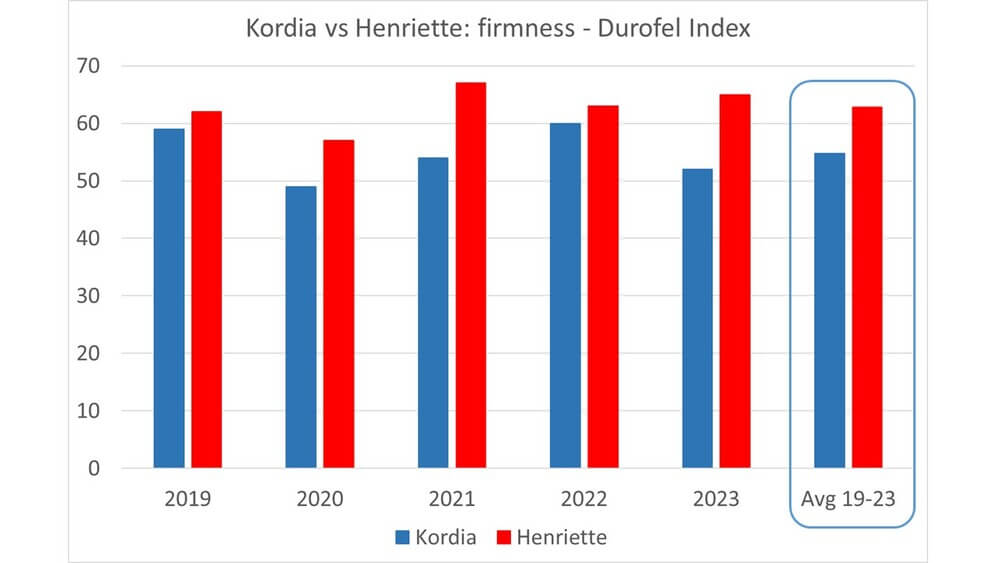
Aspects that still need to be investigated are the storage, the management of fruit drop, as well as the productivity in commercial orchards (but positive experiences have been reported from both Germany and the Province of Modena).
Gatti et al.
CSFA Laimburg (IT)
Cherry Times - All rights reserved








